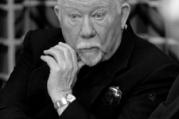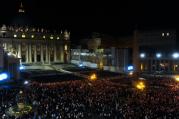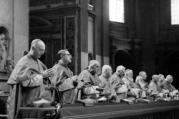Click here if you don’t see subscription options

A year ago in America I tried to tie together some impressions about modern youth under the label of the "New Breed." I must confess I was overwhelmed by the reaction. All sorts of people announced--some of them validly--that they were members of this New Breed and happily proclaimed that at long last there was someone who understood them. (Alas, it is not true; I do not understand them.) On the other hand, many of those who had identified in the New Breed a dangerous enemy blamed me for the New Breed phenomenon-on the same principle, I suppose, that ancient kings invoked in executing messengers who brought bad news: he who announces bad news is the one responsible for its coming to be.

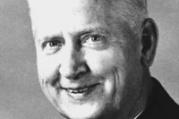
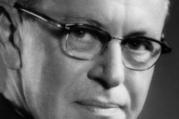
I write this just after the completion of the fourth general congregation in this second session of Vatican Council II. In four days, the conciliar Fathers and the attached experts have listened to 59 speeches by cardinals and bishops. It is already possible to give some idea of what is happening here.

